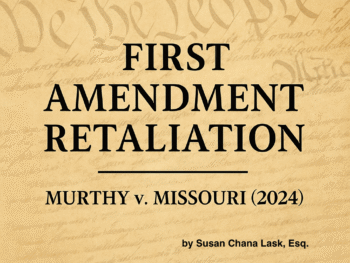It’s a Seller’s market, but home Buyers can profit too by avoiding these three mistakes regarding sales prices, home inspection and title companies:
1. Failing to Research Comparable Sales
Free real estate listing sites such as Zillow and Redfin are a huge help to value the property you’re considering buying. There you can look up similar properties in the neighborhood or the building you’re interested in, and make a list of the recent sales.
Create an offer reasonably comparable to the latest sales prices in the last six months to a year in the neighborhood or building where the property you want to but is located. Those are called your “comps” or comparables. Comps are what realtors use to price properties. Using comps helps you determine a reasonable offer.
Zillow also shows the sales history of the property and what the seller paid for it. That information shows how much profit the seller would make in this market, which may be to your advantage by a few thousand or so. For example, if the seller brought low years ago at say $350,000 and in this market lists at $500,000, then you may have room to negotiate lower than comps by maybe $3,000 or so by showing the seller they are making a huge profit.
Sellers try to stick with whatever the market is now, and might retort that what they bought the home for 10 years ago means nothing in today’s marker. On the other hand, a seller may be reasonable and understand they have room to go lower than today’s comps if they are making a huge profit, and really want to sell.
Also, when making your offer, take into account the condition of the property. Maybe a similar property sold for $400,000.00, but the pictures of that property on Zillow show it had upgraded marble floors or new appliances that justify that price. In comparison, the property you’re considering may have old appliances, need a new air conditioner or other reasons that you can make a good argument to offer less than the comps show.
2. Waiving a Home Inspection Review Period
Getting a home inspection by a licensed inspector is crucial. If your realtor doe snot have a few to recommend for you to speak to, then look up one on Google and check their customer reviews.
Additionally, make sure your Purchase Contract has the following terms, or something similar, so you have an option to cancel the contract and your downpayment returned if the home inspections report is not to your satisfaction:
PROPERTY INSPECTION; RIGHT TO CANCEL:
(a) PROPERTY INSPECTIONS AND RIGHT TO CANCEL: Buyer shall have ______ (if left blank, then 15) days after Effective Date (“Inspection Period”) within which to have such inspections of the Property performed as Buyer shall desire during the Inspection Period. If Buyer determines, in Buyer’s sole discretion, that the Property is not acceptable to Buyer, Buyer may terminate this Contract by delivering written notice of such election to Seller prior to expiration of Inspection Period. If Buyer timely terminates this Contract, the Deposit paid shall be returned to Buyer, thereupon, Buyer and Seller shall be released of all further obligations under this Contract.”
It’s not in your best interests to save a few hundred dollars or so by waiving a home inspection as an inspector will check everything from the fuse box, all electrical outlets, the HVAC, the roof and more to inform you of leaks, defects and other things that can costs thousands to repair after you move in.
With a home inspection period in your contract, you can report to the seller any problems. If the seller will not repair then you can make an informed decision if its still worth it to buy at the added expense of you repairing defective items.
3. Failing to Research Your Title Agent
Always use a reputable, established and licensed and insured title agent that also uses a reputable title company with a good credit rating. The title agent is the local office that uses a title company to insure you get clear title to your home. Using a fly by night title agent can cost you dearly.
To protect yourself, ask your title agent for a “Closing Protection Letter” addressed to you which comes from their title insurance company that states they are bonded and insured, and provided their insurance information.
This is important because after you sign the contract, there is a certain period of time, such as 15 days, for you to get a title commitment from your title company. The commitment is a report generated after your title agent orders certain searches of the property, tax and other public records to find mortgages, liens, judgments or other encumbrances existing against the property and the sellers themselves. For instance, the sellers might have tax liens that are now imposed against the house.
All encumbrances need to be cleared and paid off before closing. But, if you use a non-reputable title agent, they may not order the proper searches , and then you will buy a property with a lien that you might now discover until someone comes knocking on your door to foreclose on your new home. Or your title agent may forget to order title timely and you can lose the contract and your entire downpayment by failing to have the report by the specified date in the contract.
Considering the above, you can save yourself money and time if you (1) know comparable sales so you do not offer too high where you leave no room to negotiate or too low where you insult the seller and they refuse to negotiate at all, (2) get a reputable home inspector and (3) use a reputable title agent who uses a highly rated title insurance company.
This is solely a brief article on a subject, not legal advice, and you should consult with an attorney.











 KOMO News: Lask’s Lawsuit against popular Wag! pet service alleges false advertising
KOMO News: Lask’s Lawsuit against popular Wag! pet service alleges false advertising